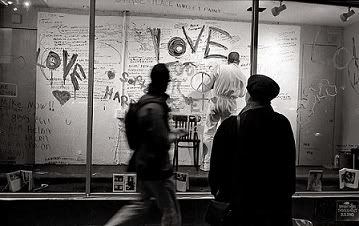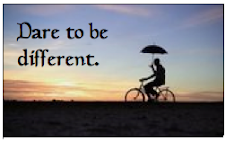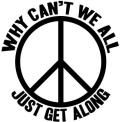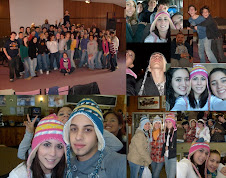What's wrong with the world, mama
People livin' like they ain't got no mamas
I think the whole world addicted to the drama
Only attracted to things that'll bring you trauma
Overseas, yeah, we try to stop terrorism
But we still got terrorists here livin'
In the USA, the big CIA
The Bloods and The Crips and the KKK
But if you only have love for your own race
Then you only leave space to discriminate
And to discriminate only generates hate
And when you hate then you're bound to get irate, yeah
Madness is what you demonstrate
And that's exactly how anger works and operates
Man, you gotta have love just to set it straight
Take control of your mind and meditate
Let your soul gravitate to the love, y'all, y'all
People killin', people dyin'
Children hurt and you hear them cryin'
Can you practice what you preach
And would you turn the other cheek
Father, Father, Father help us
Send some guidance from above
'Cause people got me, got me questionin'
Where is the love (Love)
Where is the love (The love)
Where is the love (The love)
Where is the love
The love, the love
It just ain't the same, always unchanged
New days are strange, is the world insane
If love and peace is so strong
Why are there pieces of love that don't belong
Nations droppin' bombs
Chemical gasses fillin' lungs of little ones
With ongoin' sufferin' as the youth die young
So ask yourself is the lovin' really gone
So I could ask myself really what is goin' wrong
In this world that we livin' in people keep on givin'
in
Makin' wrong decisions, only visions of them dividends
Not respectin' each other, deny thy brother
A war is goin' on but the reason's undercover
The truth is kept secret, it's swept under the rug
If you never know truth then you never know love
Where's the love, y'all, come on (I don't know)
Where's the truth, y'all, come on (I don't know)
Where's the love, y'all
People killin', people dyin'
Children hurt and you hear them cryin'
Can you practice what you preach
And would you turn the other cheek
Father, Father, Father help us
Send some guidance from above
'Cause people got me, got me questionin'
Where is the love (Love)
Where is the love (The love)
Where is the love (The love)
Where is the love
The love, the love
I feel the weight of the world on my shoulder
As I'm gettin' older, y'all, people gets colder
Most of us only care about money makin'
Selfishness got us followin' our wrong direction
Wrong information always shown by the media
Negative images is the main criteria
Infecting the young minds faster than bacteria
Kids wanna act like what they see in the cinema
Yo', whatever happened to the values of humanity
Whatever happened to the fairness in equality
Instead in spreading love we spreading animosity
Lack of understanding, leading lives away from unity
That's the reason why sometimes I'm feelin' under
That's the reason why sometimes I'm feelin' down
There's no wonder why sometimes I'm feelin' under
Gotta keep my faith alive till love is found
People killin', people dyin'
Children hurt and you hear them cryin'
Can you practice what you preach
And would you turn the other cheek
Father, Father, Father help us
Send some guidance from above
'Cause people got me, got me questionin'
People livin' like they ain't got no mamas
I think the whole world addicted to the drama
Only attracted to things that'll bring you trauma
Overseas, yeah, we try to stop terrorism
But we still got terrorists here livin'
In the USA, the big CIA
The Bloods and The Crips and the KKK
But if you only have love for your own race
Then you only leave space to discriminate
And to discriminate only generates hate
And when you hate then you're bound to get irate, yeah
Madness is what you demonstrate
And that's exactly how anger works and operates
Man, you gotta have love just to set it straight
Take control of your mind and meditate
Let your soul gravitate to the love, y'all, y'all
People killin', people dyin'
Children hurt and you hear them cryin'
Can you practice what you preach
And would you turn the other cheek
Father, Father, Father help us
Send some guidance from above
'Cause people got me, got me questionin'
Where is the love (Love)
Where is the love (The love)
Where is the love (The love)
Where is the love
The love, the love
It just ain't the same, always unchanged
New days are strange, is the world insane
If love and peace is so strong
Why are there pieces of love that don't belong
Nations droppin' bombs
Chemical gasses fillin' lungs of little ones
With ongoin' sufferin' as the youth die young
So ask yourself is the lovin' really gone
So I could ask myself really what is goin' wrong
In this world that we livin' in people keep on givin'
in
Makin' wrong decisions, only visions of them dividends
Not respectin' each other, deny thy brother
A war is goin' on but the reason's undercover
The truth is kept secret, it's swept under the rug
If you never know truth then you never know love
Where's the love, y'all, come on (I don't know)
Where's the truth, y'all, come on (I don't know)
Where's the love, y'all
People killin', people dyin'
Children hurt and you hear them cryin'
Can you practice what you preach
And would you turn the other cheek
Father, Father, Father help us
Send some guidance from above
'Cause people got me, got me questionin'
Where is the love (Love)
Where is the love (The love)
Where is the love (The love)
Where is the love
The love, the love
I feel the weight of the world on my shoulder
As I'm gettin' older, y'all, people gets colder
Most of us only care about money makin'
Selfishness got us followin' our wrong direction
Wrong information always shown by the media
Negative images is the main criteria
Infecting the young minds faster than bacteria
Kids wanna act like what they see in the cinema
Yo', whatever happened to the values of humanity
Whatever happened to the fairness in equality
Instead in spreading love we spreading animosity
Lack of understanding, leading lives away from unity
That's the reason why sometimes I'm feelin' under
That's the reason why sometimes I'm feelin' down
There's no wonder why sometimes I'm feelin' under
Gotta keep my faith alive till love is found
People killin', people dyin'
Children hurt and you hear them cryin'
Can you practice what you preach
And would you turn the other cheek
Father, Father, Father help us
Send some guidance from above
'Cause people got me, got me questionin'
Where is the love (Love)







